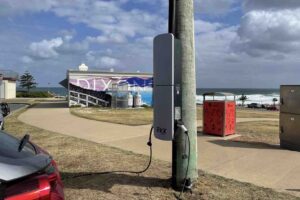A particular point of misinformation commonly bandied about by electric vehicle naysayers is that there is no point investing in an EV to reduce carbon emissions if you charge it off a coal-powered grid.
Statements like these muddy the argument for clean transport and confuse the public about a transition that could have a significant impact on carbon emissions, considering that transport accounts for nearly one-fifth of carbon emissions in Australia.
But more importantly, they are also completely wrong.
A recent study published by researcher Ryan Cornell of Harvard University shows that electric vehicles emit less carbon emissions than internal combustion engine (ICE) vehicles even when charged off a largely coal-powered grid.
Using the Argonne full lifecycle model, which accounts for battery and vehicle manufacturing as well as a standardised 150,000 miles (about 240,000km) life, an average ICE vehicle will emit around 69 metric tonnes in its lifetime.
But an EV, in a state like Wyoming which is almost completely powered by coal, will only produce 66 metric tonnes if the vehicle is made by a manufacturer using a grid that is 13% renewables (the US national average).
And of course, the more renewables the better.
To read the full story on RenewEconomy’s electric vehicle dedicated site, The Driven, click here…










